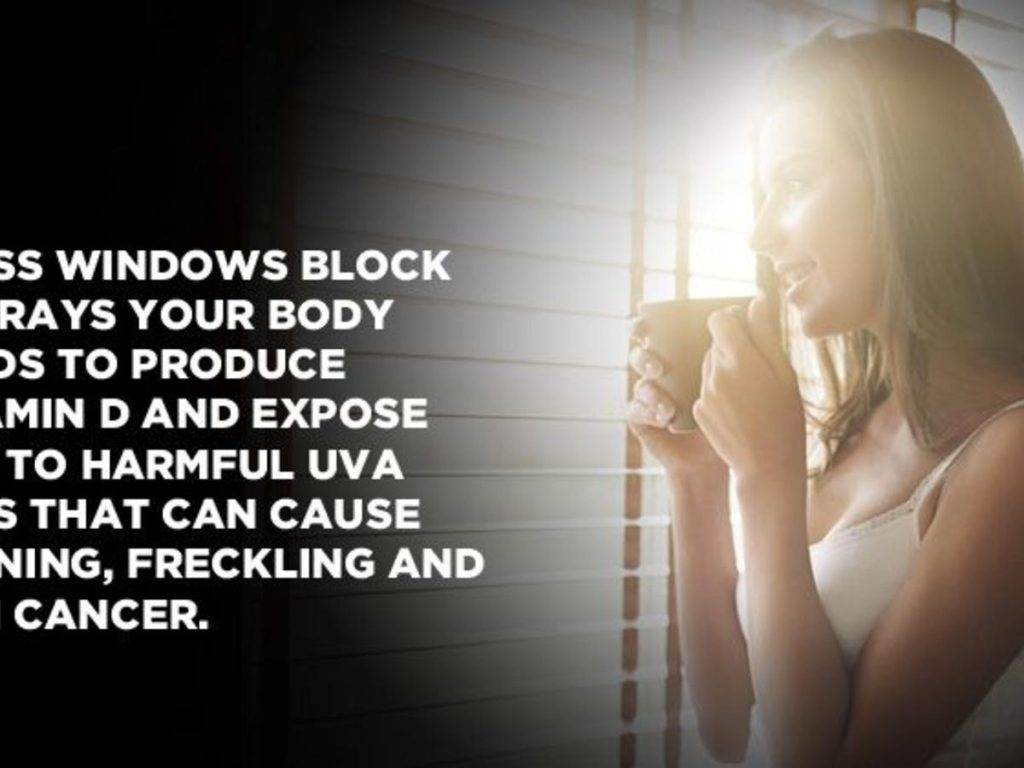Ever wondered if you can soak in some Vitamin D while sitting by a window? We’ve all heard about the benefits of vitamin D and how it is primarily synthesized in our skin when exposed to sunlight. But does that mean even the sunlight coming through a window can give us this essential vitamin? Let’s shed some light on this topic and find out if catching those rays through a window can truly benefit our vitamin D levels.

This image is property of static01.nyt.com.
Factors That Influence Vitamin D Synthesis Through a Window
Glass Type and UV Radiation
The type of glass used in windows plays a crucial role in the amount of ultraviolet (UV) radiation that is able to penetrate through. Certain types of glass, such as low-e glass, are designed to block a significant amount of UV radiation. This can greatly reduce the amount of vitamin D that is synthesized when exposed to sunlight through the window.
Window Tinting and UV Penetration
Window tinting, often used for privacy or to reduce heat from sunlight, can also affect UV penetration. While some window tints are designed to block both UVB and UVA rays, others may allow some UV radiation to pass through. It is important to consider the type of window tinting used when assessing the potential for vitamin D synthesis through a window.
Time of Day and Sun’s Angle
The time of day and the angle at which the sun’s rays hit the window are important factors that influence vitamin D synthesis. Since the angle of the sun changes throughout the day, the amount of UV radiation that reaches a window can vary. Additionally, during certain times of the day, such as early morning or late afternoon, the angle of the sun may be too low to allow for optimal UV penetration through a window.
Cloud Cover and UV Transmission
Cloud cover can significantly reduce the amount of UV radiation that reaches the Earth’s surface. This means that even if sunlight is able to pass through a window, the UV radiation may be greatly diminished on cloudy days. It is important to keep in mind that vitamin D synthesis is most effective when there is clear sunlight and minimal cloud cover.
Effectiveness of Window Sun Exposure for Vitamin D Production
Limited UVB Transmission
One of the key factors that limits the effectiveness of window sun exposure for vitamin D production is the limited transmission of UVB rays through glass. While UVA rays can often penetrate through windows, UVB rays, which are essential for vitamin D synthesis, are largely absorbed by glass. As a result, the amount of vitamin D that can be produced through a window is significantly reduced.
Decreased UVB Intensity
Even if some UVB rays manage to pass through a window, their intensity is greatly decreased compared to direct sunlight. This is because glass filters out a significant portion of the UVB radiation that reaches it. As a result, the amount of vitamin D that can be synthesized through window sun exposure is limited.
Interference of UVA Rays
While UVA rays are able to penetrate through windows more easily than UVB rays, they do not contribute to vitamin D synthesis. In fact, UVA rays can interfere with the production of vitamin D by breaking down and deactivating the precursor molecule in the skin that is needed for synthesis. This further diminishes the potential benefits of window sun exposure for vitamin D production.
Vitamin D-Integrated Glass and Devices
In recent years, there have been advancements in the development of glass and devices that are specifically designed to enhance vitamin D synthesis. These innovations involve the integration of vitamin D-producing compounds into the glass or the use of specialized devices that emit UV radiation similar to sunlight. While these technologies show promise, they are still in the early stages of development and are not widely available.
Benefits and Risks of Sun Exposure Through a Window
Ease of Sun Exposure
One of the benefits of sun exposure through a window is the convenience and ease of access. Especially for individuals who spend a significant amount of time indoors, being able to receive sunlight through a window can help ensure some level of sun exposure for vitamin D synthesis.
Minimal Risk of Sunburn
Another advantage of sun exposure through a window is the reduced risk of sunburn. Since the ultraviolet radiation that causes sunburn, known as UVB radiation, is largely absorbed by glass, the likelihood of getting sunburned while sitting near a window is significantly reduced compared to direct sun exposure.
Reduced Vitamin D Production
However, while there are benefits to sun exposure through a window, the amount of vitamin D that can be produced is limited. As discussed earlier, glass blocks a significant amount of UVB radiation, resulting in decreased vitamin D synthesis. This means that relying solely on sun exposure through a window may not provide adequate levels of vitamin D.
Increased UVA Exposure and Skin Aging
One of the potential risks of sun exposure through a window is the increased exposure to UVA rays. As mentioned earlier, UVA rays can easily penetrate through windows, and prolonged exposure to UVA radiation can contribute to premature aging of the skin and an increased risk of skin cancer. It is important to balance the potential benefits of window sun exposure for vitamin D production with the risks of increased UVA exposure.
Alternative Sources of Vitamin D
Dietary Sources
If sun exposure through a window is limited or not a viable option, there are alternative sources of vitamin D that can be incorporated into one’s diet. Foods such as fatty fish (e.g., salmon, mackerel), fortified dairy products, egg yolks, and mushrooms are all good sources of vitamin D. Including these foods in a balanced diet can help maintain adequate levels of vitamin D.
Supplements
In cases where it is difficult to obtain sufficient vitamin D through sun exposure and diet alone, supplements can be a valuable addition. Vitamin D supplements are widely available and can be taken orally to ensure optimal levels of vitamin D in the body. It is important to consult with a healthcare professional to determine the appropriate dosage for specific needs.

This image is property of im.indiatimes.in.
The Importance of Vitamin D
Regulation of Calcium and Phosphorus Levels
Vitamin D plays a crucial role in regulating calcium and phosphorus levels in the body. It promotes the absorption of calcium and phosphorus from the intestines, which is essential for maintaining strong and healthy bones. A deficiency in vitamin D can lead to weakened bones and an increased risk of fractures.
Enhanced Immune System Function
Vitamin D also plays a role in supporting the immune system. It helps stimulate the production of antimicrobial peptides, which are necessary for the body’s defense against harmful bacteria and viruses. Adequate levels of vitamin D are important for maintaining a healthy immune system and preventing infections.
Bone Health
In addition to regulating calcium and phosphorus levels, vitamin D is essential for overall bone health. It helps promote the mineralization of bones, ensuring they are strong and resistant to fractures. Maintaining adequate levels of vitamin D throughout life is crucial for preventing conditions such as osteoporosis and rickets.
Mental Health and Mood Regulation
Studies have suggested a relationship between vitamin D deficiency and mental health disorders such as depression and Seasonal Affective Disorder (SAD). Vitamin D receptors are found in areas of the brain that are involved in mood regulation, and adequate levels of vitamin D may help support optimal mental health.
Recommended Daily Intake of Vitamin D
Age-specific Requirements
The recommended daily intake of vitamin D varies depending on age and life stage. For infants up to 12 months, a daily intake of 400 International Units (IU) is recommended. Children and adults up to 70 years of age are advised to consume 600 IU of vitamin D daily, while adults over 70 years are recommended to increase their intake to 800 IU per day. Pregnant and breastfeeding women also have specific vitamin D requirements.
Benefits of Meeting the Recommended Intake
Meeting the recommended daily intake of vitamin D has numerous benefits for overall health and well-being. Adequate vitamin D levels support bone health, immune function, and mental health. It is essential to ensure that dietary sources and/or supplementation are utilized to meet the recommended intake, especially in situations where sun exposure through a window may be limited.

This image is property of www.aptinting.com.
Health Conditions Associated with Vitamin D Deficiency
Rickets in Children
Vitamin D deficiency can lead to a condition known as rickets in children. Rickets is characterized by weak and soft bones, which can result in skeletal deformities and growth retardation. Ensuring adequate vitamin D levels through appropriate sun exposure, diet, and supplementation is crucial for preventing rickets in children.
Osteomalacia in Adults
In adults, vitamin D deficiency can cause a condition called osteomalacia. Osteomalacia is characterized by the softening of bones, which can lead to chronic bone pain, muscle weakness, and an increased risk of fractures. Maintaining optimal vitamin D levels through sun exposure, diet, and supplementation is important for preventing osteomalacia.
Increased Risk of Chronic Diseases
There is growing evidence to suggest that vitamin D deficiency may be associated with an increased risk of chronic diseases such as cardiovascular disease, diabetes, and certain types of cancer. While more research is needed to fully understand these associations, it highlights the importance of maintaining sufficient levels of vitamin D for overall health and disease prevention.
Tips for Optimizing Vitamin D Levels
Regular Safe Sun Exposure
If sun exposure through a window is limited, it is important to seek out safe sun exposure opportunities. Spending time outdoors, especially during the peak hours of sunlight, can help promote vitamin D synthesis. It is important to protect the skin by wearing sunscreen, covering exposed skin, and avoiding prolonged sun exposure without adequate protection.
Balanced Diet Rich in Vitamin D
Incorporating vitamin D-rich foods into the diet is essential for optimizing vitamin D levels. Fatty fish, fortified dairy products, egg yolks, and mushrooms are all excellent sources of vitamin D that can be easily included in meals. Following a balanced diet that includes these foods can help maintain adequate vitamin D levels.
Supplementation Guidance
In cases where sun exposure and dietary sources are insufficient to meet the recommended daily intake of vitamin D, supplementation may be necessary. It is important to consult with a healthcare professional before starting any supplements to determine the appropriate dosage and ensure safety.

This image is property of parade.com.
Conclusion
While it is technically possible to get vitamin D from the sun through a window, there are several factors that limit its effectiveness. The type of glass, window tinting, time of day, and cloud cover all influence the amount of UV radiation that can penetrate through a window. Additionally, the limited transmission of UVB rays, decreased UVB intensity, and interference of UVA rays further reduce the potential for vitamin D synthesis through window sun exposure.
Understanding the benefits and risks of sun exposure through a window is important for maintaining adequate vitamin D levels. While there are advantages such as ease of sun exposure and reduced risk of sunburn, the reduced vitamin D production and increased UVA exposure must be considered. Alternative sources of vitamin D, such as dietary sources and supplements, should be explored to ensure optimal vitamin D levels.
Vitamin D is crucial for various aspects of health, including bone health, immune function, and mental well-being. Meeting the recommended daily intake of vitamin D is important for preventing health conditions associated with deficiency, such as rickets and osteomalacia, as well as reducing the risk of chronic diseases.
To optimize vitamin D levels, regular safe sun exposure, a balanced diet rich in vitamin D, and supplementation if necessary are recommended. It is essential to take a multifaceted approach and consider all available sources and strategies to maintain adequate levels of vitamin D for optimal health and well-being.
